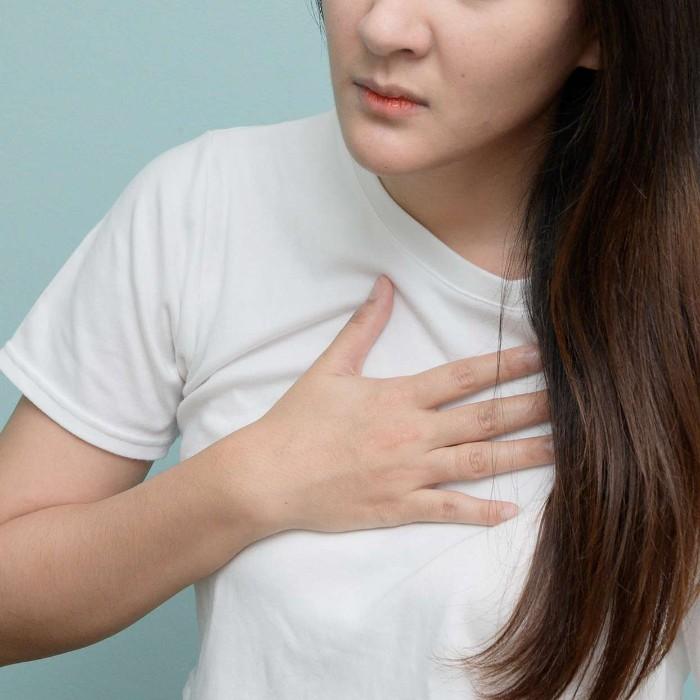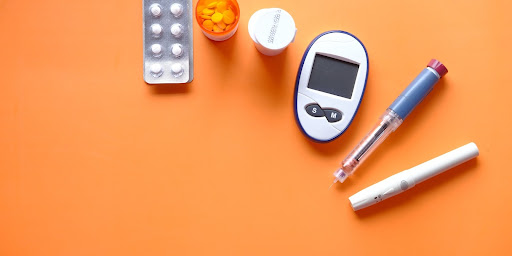Do you ever feel like something is squeezing your chest or you're out of breath? This can be a frightening experience, but it's important to know that there are physical and psychological causes behind why your chest may feel tight.
In this blog post, we'll look at the possible explanations for this strange sensation, potential treatments, and ways to help reduce or manage any symptoms. Read on to learn more about why your chest might feel tight and what steps you can take if this becomes an issue in your daily life.
Identifying Symptoms of Chest Tightness
Chest tightness is a feeling of discomfort or pain in the chest area. It can range from mild to severe, and the sensation can vary depending on its cause. Common signs and symptoms of chest tightness include:
- Difficulty breathing
- Tight, squeezing, or burning feeling
- Rapid heartbeat
- The feeling of pressure or heaviness
- Pain that radiates into the shoulders, arms, or back
- Weakness, dizziness, and sweating
- Anxiety or panic attacks
It is important to seek medical attention immediately if you experience chest tightness accompanied by other symptoms such as shortness of breath, profuse sweating, lightheadedness, or nausea.
Common Causes of Chest Tightness

Chest tightness is a common symptom of anxiety and panic attacks, but it can also be caused by other medical conditions such as asthma or GERD. When chest tightness occurs suddenly, it can cause fear and worry that something more serious may be wrong. It's important to understand the potential causes so you can take steps to address the underlying issue.
1. Anxiety and Panic Attacks: The feeling of chest tightness is a common symptom of anxiety and panic attacks caused by intense emotional stress. During a panic attack, the body releases hormones that can cause changes in breathing, heart rate, and muscle tension – all of which can lead to a feeling of chest tightness.
2. Asthma: Chest tightness can be caused by asthma, a chronic condition affecting the lungs and airways. During an asthma attack, the airways become inflamed and narrow, leading to coughing, wheezing, shortness of breath, and chest tightness.
3. Gastroesophageal Reflux Disease (GERD): Chest tightness can also be a symptom of GERD caused by stomach acid refluxing into the esophagus. This irritation can cause chest pain or burning sensations in addition to the tightening feeling.
4. Cardiovascular Conditions: Tightness in the chest may also be due to a heart attack or other cardiovascular conditions. It's important to seek immediate medical attention if chest tightness is accompanied by other symptoms such as dizziness, trouble breathing, sweating, or pain in the arms or jaw.
Diagnosis and Treatment Options
When experiencing chest tightness, seeking medical attention from a doctor or health professional is important. Several conditions, including asthma, anxiety, and heart problems, could cause it. A doctor can diagnose the cause of your chest tightness and help you find an appropriate treatment plan.
Asthma is one of the most common causes of chest tightness and can be easily diagnosed by a doctor. The symptoms of an asthma attack include wheezing, coughing, difficulty breathing, and chest tightness. Treatment for asthma includes medications such as inhalers, which deliver medication directly to the lungs to help open up airways.
Anxiety is another potential cause of chest tightness. Individuals who experience anxiety often describe feelings of tension or a strong pressure in the chest that can be uncomfortable and even frightening. Treatment for anxiety may include cognitive-behavioral therapy, relaxation techniques, or medications prescribed by your doctor.
Chest tightness can also indicate a heart problem like angina or a heart attack. A doctor can diagnose these conditions using an electrocardiogram (ECG) or stress test. Treatment for angina and heart attack includes medications to reduce the risk of another event, lifestyle changes, such high as blood quitting smoking, and in some cases, surgery pressure or a heart attack. If. you have
When to See a Doctor About Chest Tightness
If you experience chest tightness that lasts for more than a few minutes or if it is accompanied by other symptoms such as difficulty breathing, pain, light headedness, dizziness, sweating, or a rapid heartbeat, then you should seek medical attention immediately. Paying attention to these signs and getting help immediately to rule out any serious underlying conditions is important.
Chest tightness can be a symptom of many conditions, ranging from minor to life-threatening. It is important to determine the cause to provide appropriate treatment. Common causes of chest tightness include anxiety, gastro esophageal reflux disease (GERD), asthma, pneumonia, and heart-related conditions such as heart attack and angina.
If you are experiencing chest tightness and have difficulty breathing, it is important to call 911 or go to the emergency room for medical treatment. Other chest tightness symptoms could include pain, nausea, sweating, light headedness, dizziness, or a rapid heartbeat.
Prevention Tips for Avoiding Chest Tightness

1. Exercise Regularly
Regular exercise helps lower the risk of chest tightness caused by diseases like angina or asthma by maintaining a healthy heart and lungs. On most days of the week, try to get in at least 30 minutes of moderate-intensity activity, such as brisk walking, running, swimming, or cycling.
2. Avoid Cigarettes and Secondhand Smoke
Smoking or being exposed to secondhand smoke can irritate the airways, leading to chest tightness. Avoiding cigarettes and secondhand smoke is key for preventing chest tightness.
3. Eat Healthily
Eating a balanced diet low in saturated fat and sodium can help minimize chest tightness. Include plenty of fruits, vegetables, legumes, and whole grains to get important vitamins and minerals.
4. Monitor Allergens
If you have allergies or asthma, be aware of the allergens that can trigger chest tightness. Common allergens include dust mites, pet dander, mold, and pollen. Avoid contact with these triggers or reduce their presence in your home if you can.
5. Drink Enough Water
Staying hydrated is important for chest tightness prevention since dehydration can lead to respiratory problems. Aim for 8-10 glasses of water daily, and increase your intake when exercising or in hot, humid weather.
6. Stay Away From Pollution and Air Quality Alerts
Air pollution can worsen chest tightness, so avoid areas with poor air quality or air pollution alerts. Wear protective clothing if you must be in a heavily polluted area to minimize contact with pollutants.
7. Take Medication as Directed
If you have been prescribed medication to prevent or manage chest tightness, take it as directed by your doctor. This will help keep symptoms at bay and minimize the likelihood of chest tightness. Talk to your doctor about any questions or concerns about taking your medications.
FAQs
Does chest tightness go away?
Chest tightness depends on the underlying cause and can range from mild to severe. For example, if a panic attack or anxiety causes it, it may go away independently with breathing exercises and relaxation techniques. However, chest tightness due to heart-related conditions such as angina or a heart attack will require medical treatment and lifestyle change sachella
What can I do to prevent chest tightness?
To reduce the risk of chest tightness, exercise regularly, avoid cigarettes and secondhand smoke, eat a balanced diet, monitor allergens, drink enough water, stay away from pollution and air quality alerts, and take medication as directed. Keeping up with these habits may help keep chest tightness at bay.
Can gas cause chest pain?
Tightness can be caused by gastro esophageal reflux disease (GERD), which is a condition that occurs when stomach acid flows backward and up into the esophagus. This often causes chest pain, tightness, and other symptoms such as heartburn and difficulty swallowing.
Conclusion
Various conditions can cause chest tightness, some more serious than others. While taking the time to identify symptoms, understand the causes, and review available treatment options is important, prevention can help reduce the risk and severity of your chest tightness in the long run. Taking active steps such as quitting smoking, regular We'llcise and stretching, eating a healthy diet rich in anti-inflammatory foods, and getting enough rest are all helpful for avoiding chest tightness.




